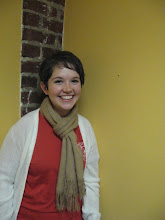
Conveniently, I got pretty sick during a time of transition and my school holiday. It took about two weeks of tests to diagnose me with…food poisoning. It wasn’t malaria. Not typhoid. No chance of cholera, but food poisoning. I’m affectionately calling it “righteous food poisoning” to account for my suffering. I was finally put on the right kind of antibiotics, and now I’m feeling much better. I even started a new job.
Not being used to the types of antibodies here, I’m susceptible to a new host of possible illnesses. This was my turn and it was easily curable. And that’s what was so striking to me. On day #2 of antibiotics, I was a new person. The scope of these infections is so widespread and damaging, but the solution has already been found. I found this article written by a worker in neighboring Rwanda.
He writes, “parasitic and bacterial infections…are the most common chronic infections among the world’s poorest people…These ailments… not only lead to pain, discomfort and the distended bellies you often see in pictures of poor, malnourished children; they also cripple entire generations. Infections reach maximum intensity in the age range of five to 14 years, effectively stunting both physical and mental development at the most critical time in the victims’ lives.”
This writer goes onto explain the subtle threat of these parasites and their hindrance to development. There are others on the list: malaria, typhoid, HIV/AIDS getting the most press. But the article resonates with my gut feeling, “we can do something about this…” Living in poverty makes one susceptible to infinitely more life-threatening dangers, but it does not have to be a death sentence.
All too often it is.
This being World AIDS week has made me think about how living with HIV is very different in other parts of the world. This year’s theme was “Universal Access and Human Rights.” It brings attention to the fact that the vast majority of people infected with HIV/AIDS are in low-income countries and do not have the kind of access required to put a significant decrease in the statistics. In Kenya, I am happy to say that the rate of infection and of death due to HIV/AIDs has been reduced. However, 1.4 million people here have HIV, and more than half of the people who need life-saving drugs are not getting them. I celebrate what is being done and say it proves only how much more we can do.
I started working for a new organization this week called Catholic Relief Services. My job is nothing glamorous, but I do what needs to be done (in this case, data entry) for an organization that is really doing things. They give comprehensive care all over Kenya. They are quick to point out that poverty has many faces, and most recently, these faces have been most devastatingly affected by the drought. One of the ways we might not think about right away is the drought halting many people's HIV treatment, since the medication must be balanced by good nutrition, which is hard to come by during drought times. When there is no rain, there is no food, no water, no livestock, which also means there is no income, which means no medical care, which means…the cycle continues. And to complete the circle, there is no rain because there is global warming, and there is global warming because…well, because of us, mostly. We are not so far removed. We are all connected.
My new roommates and I (other YAVs in Nairobi) made an advent wreath last night out of recycled things. The first candle during this first week of Advent represents hope. Recently, I felt really connected to chapter 5 in Lamentations. It felt like the writer was lamenting current events in Kenya, and even in that context there is still, “Restore us to yourself, O LORD, that we may return; renew our days as of old.” Hope. After a bleak blog entry, I maintain my hope in things seen- programs that are working, people that are reached-and things unseen- a world where susceptibility turns to sustainability, and where we don’t put a cost on the saving of a life.



3 comments:
I'm so glad to hear you are on the mend!!!
I would go with "venomous nourishment", with which I can sympathize. Never had it for 2 weeks, but have had it several times in my life.
I love reading your posts, Deanna. Glad you are feeling better. Stay well!
Post a Comment